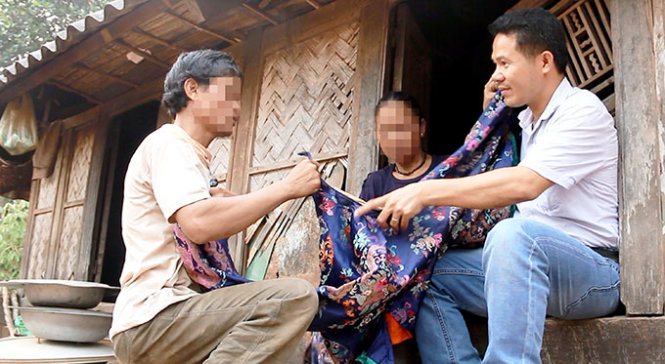Re-marrying the deceased husband or wife’s kin has been a traditional practice of marriage followed from generation to generation by the two ethnic minority peoples of Pa Co and Van Kieu in central Vietnam.
>> An audio version of the story is available here
However, the custom has gradually been abolished these days.
The tradition generally called ‘connecting the line’ is a type of marriage in which a man is obliged to marry his sister-in-law when his brother passes away and it is also compulsory for a widow to get married to her late husband's brother.
That is also a challenge a woman’s family presents when a groom wishes to marry her.
That practice of marriage has been known to many societies around the world.
In Vietnam, it is popular among Pa Co and Van Kieu minority people living in Quang Tri Province along the border with Laos.
The most common are the re-marriage of a widow and brother-in-law and a widower and sister-in-law.
In some cases, a man has two wives, as he already has a wife and then his brother dies so he has to get married to his sister-in-law.
A widow is required to marry her brother-in-law after her husband dies or she may even be forced to ‘connect the line’ with a nephew or a stepchild of the late husband.
It then gives rise to a big age gap between the wife and husband after they have ‘connected the line.’
So, the names ‘nephew husband’ or ‘brother husband’ have been created to refer to the grooms of this type of marriage.
One day Tuoi Tre (Youth) newspaper visited the house of such a couple in Huong Hoa District in Quang Tri. The husband, Ho Thoi, is 45 years old while his wife is over 70.
His story dated back over 20 years ago when his uncle died, leaving his nine children under the care of his wife Pi Ung.
“All members in my family gathered in a meeting and they asked me to take over the role of my uncle to become the husband of Pi Ung,” Thoi said, looking toward the road in front of his house where bareheaded young guys were revving up their motorbikes.
“I had to marry her, otherwise she would move back to her mother’s.
“I nodded at the proposal and moved in the house of Pi Ung.”
He added, “During the first days, I slept in the same bed with her, but later I slept in a separate bed because she was old.”
This is not a rare ‘connecting the line’ case on the 40km road along the border in Huong Hoa.
Lieutenant Colonel Ta Quang Hau, head of the local border station, said it has taken his staff very much time to persuade locals to give up the outdated practice.
Now, many families just offer the challenge to the bridegroom as a formality.
On average, a bridegroom has to pay the family of his bride less than VND20 million (US$930) to marry her, according to a local official.
The modified Marriage Law, which has taken effect this year, bans outdated practices of marriage such as the ‘connecting the line’ tradition.
Like us on Facebook or follow us on Twitter to get the latest news about Vietnam!





















































